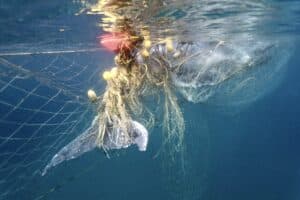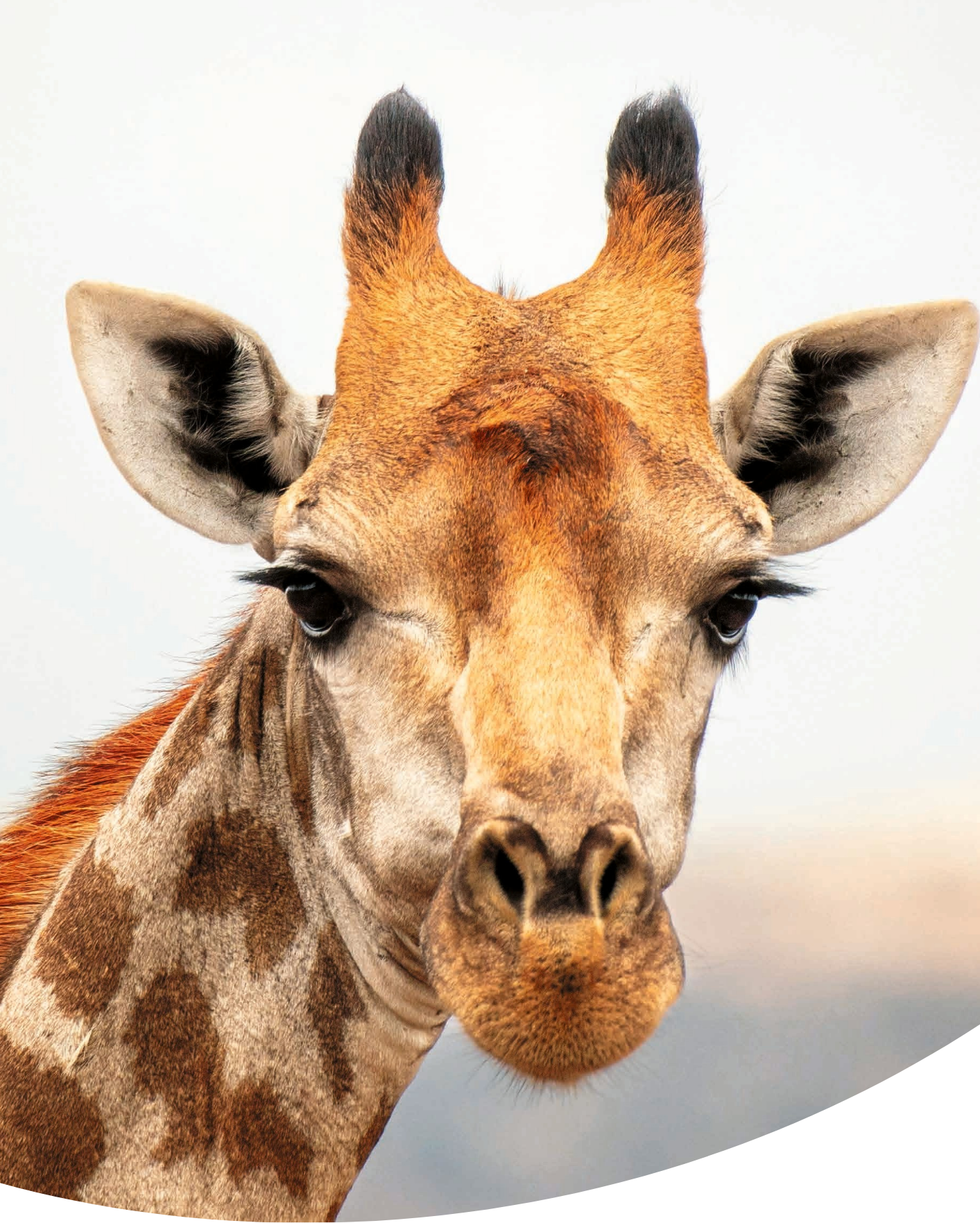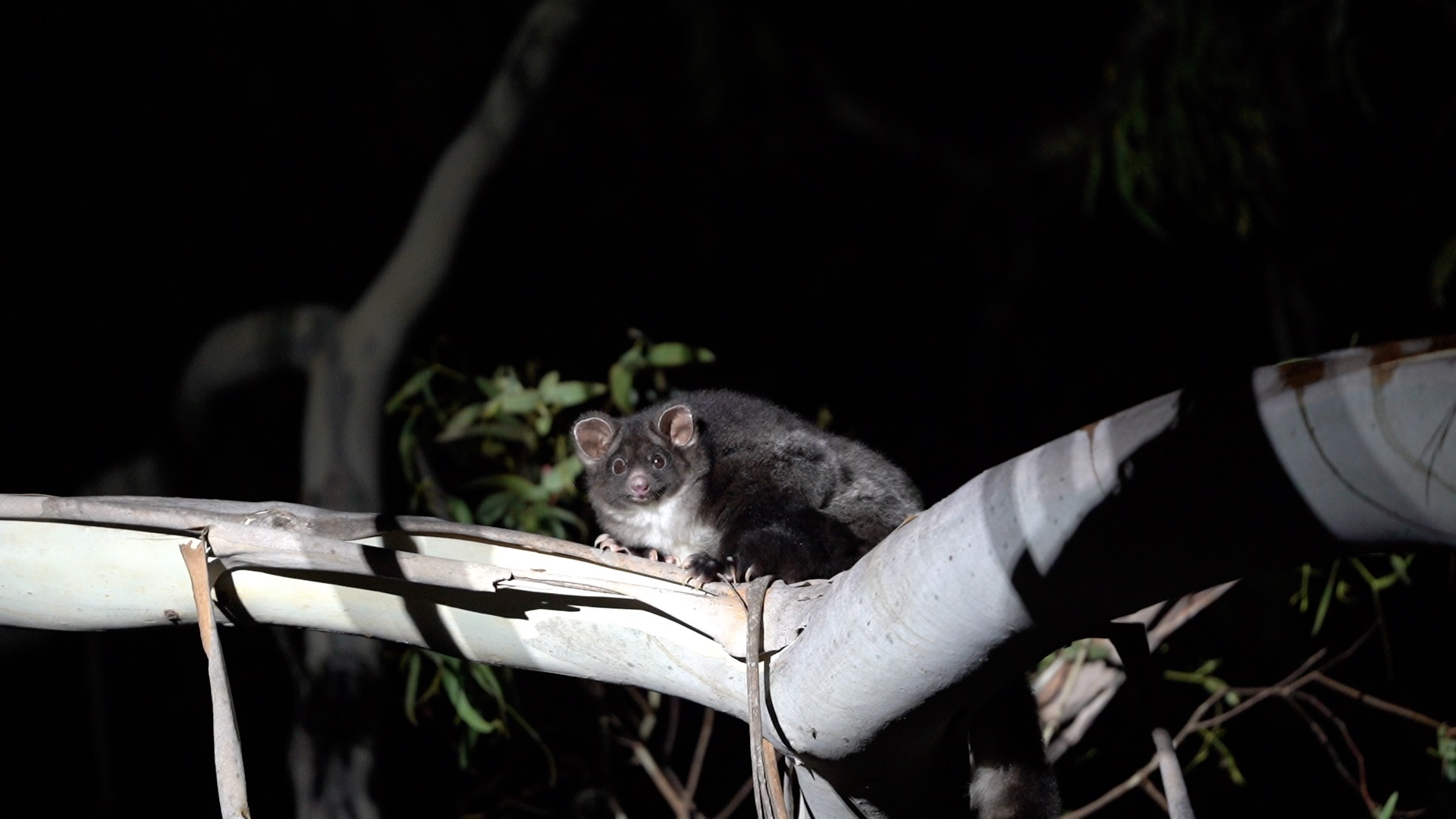Find out more about our work on federal environment reforms, the recent victory in protecting whale sharks, an update on our partner projects and lots more.
SYDNEY (29 March 2025)—NSW Government scientists have issued a damning condemnation of the state’s shark nets, stating that they could find ‘no evidence’ that shark nets decrease fatalities. The Response to the Shark Meshing (Bather Protection) Program 2023/2024 Annual Performance Report, was released late on Friday by the NSW Government’s Threatened Species Scientific Committee (TSSC) and should be the final nail in the coffin for the deployment of these outdated and ineffective devices
‘The overall objective of the shark mesh program is to reduce human fatalities from key target sharks on beaches. At present there is no evidence that such actions do decrease fatalities,’ the report states. The report also found that in areas where shark nets are deployed, they ‘could not detect differences between netted and non-netted beaches in attacks.’
Shark nets are currently deployed at 51 beaches from Newcastle to Wollongong and are set to be removed on Monday 31 March for the winter season. The NSW Government is actively considering whether to return the nets in September as planned or to remove them permanently. There has been no support for the continued use of the nets from the local councils where the nets are in use. This new condemnation from the Government’s own scientists must make the continued use of shark nets in NSW untenable. ‘When the government’s own scientists are strongly advising the government against shark nets, the Government must listen,’ said Lawrence Chlebeck, marine biologist with Humane World for Animals Australia (formerly Humane Society International Australia) who lead the campaign for the removal of shark nets in NSW.
‘We need to remember that this issue is about the nets’ ineffectiveness as a public safety measure. We want the public to be safe when they enter the water, not to be misled by something that is nothing more than a placebo, and quite possibly worse. The shark nets in question are not barriers and do not keep people safe, all they do is give a false sense of security and kill marine animals. It is irresponsible for the government to continue their use,’ Chlebeck said.

The debate over shark nets has been gathering steam in recent weeks following news of the local councils’ lack of support, and of the signage informing the public that nets are being removed one month earlier than usual – ostensibly to protect turtles. ‘The scientific committee’s advice is dismissive of the early removal of the shark nets as a sufficient measure to protect turtles. They describe the NSW Government’s killing of turtles in the nets as being ‘completely at odds’ with their obligations under the Recovery Plan for Marine Turtles. We know that ten turtles were caught in the first three months of the netting season—between September and December—and likely several more in January to March. The nets need to come out altogether to protect endangered turtles and grey nurse sharks,’ Chlebeck said. ‘Three of the turtles caught between September and December were leatherbacks and the death of just two of that species significantly increases the risk of local extinction. The grey nurse shark is another regular casualty in the nets at grave risk of extinction on the east coast. The government needs to understand that they are literally playing with these species’ survival in NSW waters,’ he said. Humane World for Animals is also concerned that the early removal of shark nets is being misreported as a permanent removal of the nets.
‘The removal of NSW shark nets on 31 March is not a permanent removal. The nets are a seasonal program, and they will go back in September as they always do unless the NSW Government makes the decision that the beachgoing public, coastal councils, and now even their own scientists, are telling them to make,’ Chlebeck said. The modern alternatives to shark nets—drone surveillance, listening stations (that detect tagged sharks) and SMART drumlines—have proven to be much more effective at detecting sharks well in advance of them being caught in a net, and allowing time for public safety measures to be taken. ‘People want evidence-based policy, and the evidence continually shows that shark nets imperil threatened species. The evidence also shows that they do not keep people safe, but that modern technology will.’ In a broader stroke, the TSSC has further condemned the management of the program and its failings of NSW wildlife.
‘The continued poor outcomes of the annual shark meshing program reflect a wider state government failing for biodiversity conservation in NSW’, and one whose management measures are ‘lacking scientific rigour’, are ‘arbitrary in their effectiveness’, and ‘increasing the risk of extinction’, the report says.
Lawrence Chlebeck is available for interview.
Key Facts
- NSW Government scientists have condemned shark nets calling them ‘a very serious anthropogenically created threat’ and ‘completely at odds’ with the NSW Government’s obligations under the Commonwealth Recovery Plan for Marine Turtles.
- The Threatened Species Scientific Committee reports to Minister for the Environment, The Hon. Penny Sharpe. The minister is required to sign an agreement with the Department of Primary Industries to exempt the operation of the shark nets from threatened species offences.
- The Fisheries Scientific Committee, who report to the Minister for Primary Industries, The Hon. Tara Moriarty, has also condemned the shark nets saying, “The FSC was disappointed that a decision was made to continue with the net program for the 2023/24 season despite substantial evidence and growing support from multiple councils, NGO’s and the community for their removal. There is now a range of more effective and sophisticated technologies that minimise the impacts to threatened species.”
- Shark nets were first introduced in 1937 with the intention of culling sharks over time. Unlike the shark net enclosures at harbour beaches, the shark nets at issue are not a barrier. They are designed to entangle and drown marine animals – as explained in our video
- The meshing season traditionally runs from 1 September to 30 April. Nets will be removed one month early in 2025 on 31 March due to turtle activity in April. The nets are due to return in September 2025
- At least 10 turtles have already been caught this season (revealed in data obtained for September and December), casting significant doubt on the early removal of shark nets for the sake of turtles. The Government says it is trialling LED lights on nets to protect turtles with no evidence that this will work.
- The early removal of shark nets on 31 March instead of 30 April in 2025 is not a permanent removal of the nets. That decision is pending and rests with Minister Moriarty.
- In the 2023/24 season, 15 target sharks were caught compared to 240 non-target species (including dolphins, rays, turtles and non-target sharks)
- Not one coastal council has voted for the continued use of shark nets on their beaches
- Modern technology—drone surveillance, listening stations and SMART drumlines—are much more effective at detecting sharks and are a much more effective public safety measure (See ‘Alternative Solutions’ attachment)Almost half (40%) of sharks caught in shark nets are caught on the beach side of the net
- Images obtained under GIPA show that shark nets are even counterproductive for public safety drawing potentially dangerous sharks to shore. The images show that animals caught in the nets have bite marks from large sharks who come to feed at the nets
- Between 1 September 2024 and 21 December 2025, 3 leatherback (2 dead, 1 released) 1 olive ridley (dead), 4 green turtle (2 dead, 2 released), 2 loggerhead turtle (1 dead, 1 released) have been found in the nets. The Government has not yet released the data from 22 December onwards despite GIPA requests.
- There is support for removing the nets from right across the parliament with cross party MPs cohosting a shark net briefing event with Humane World in Parliament this week.
Media Contact:
Matthew Smeal
0434 483 493
msmeal@humaneworld.org
About Humane World for Animals
Together, we tackle the root causes of animal cruelty and suffering to create permanent change. With millions of supporters and work happening in over 50 countries, Humane World for Animals—formerly called Humane Society International—addresses the most deeply entrenched forms of animal cruelty and suffering. As the leading voice in the animal protection space, we work to end the cruelest practices, care for animals in crisis and build a stronger animal protection movement. Driving toward the greatest global impact, we aim to achieve the
vision behind our name: a more humane world: humaneworld.org.au


